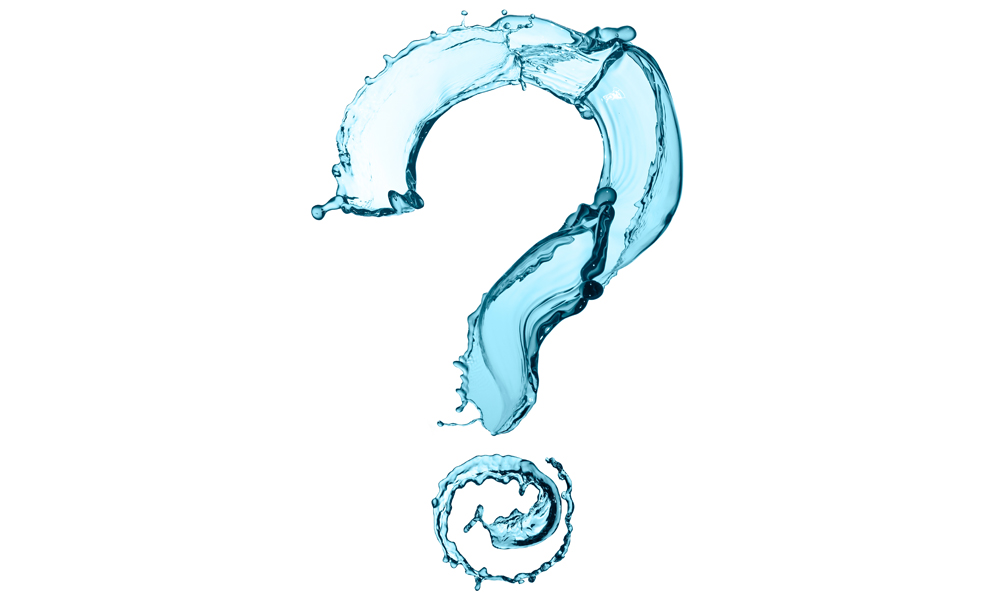
What changed with my water?
The City of Ferndale switched to a groundwater source for its water supply.
Before December 15, 2011, the City purchased its water supply from the Public Utility District No. 1 of Whatcom County (PUD). The PUD pumped water directly out of the Nooksack River and provided primary treatment to remove river sediment. The water then flowed to the City’s Water Treatment Plant where it received final treatment to remove fine sediment and suspended solids and was disinfected to meet drinking water standards before it was piped to your tap.
The PUD has significant existing and future capital project costs. This required the PUD to raise City water rates and project future water rate increases. The City did not want to pass on the cost increases to water customers, so the City decided to develop its own groundwater sources: The Shop Well and Douglas Well. These wells are drilled deep underground to extract water from a layer of rock and sand saturated with water (called an aquifer). Water is pumped from the wells directly to the City’s Water Treatment Plant.
Is my water safe to drink?
Absolutely, yes. Now that your water is coming from the ground instead of the river, the water is better protected from sources of pollution, namely spills and contaminated runoff. Ferndale’s water meets all of the rigorous state and federal water quality requirements, making it safe for citizens to drink. You can review our water quality reports by clicking here.
Does the City still treat the groundwater before it reaches my tap?
Yes, the City has made significant improvements to the Water Treatment Plant to coincide with the transition to water supply groundwater sources. We have installed new filtration equipment and treatment processes at the Water Treatment Plant
How can you assure me my water is safe to drink?
The City is constantly monitoring the water to make sure that your water is safe to drink. We have state-of-the-art monitoring equipment, which was
installed when the improvements were made to the Water Treatment Plant.I notice a difference in the taste of my water, why is that and is it safe?
If you notice a different taste, it is likely related to the naturally occurring minerals found in groundwater or the water system. The effect of mineral taste may be more noticeable to some people than others. The water is still safe to drink, it just contains natural minerals. Hard minerals, particularly magnesium and calcium, are naturally found in soil and rock, which is absorbed into the groundwater. Mineral deposits have also formed on the interior of the distribution pipes over the years. The transition to groundwater can create a reaction that releases the mineral deposits, and may affect water taste. We can assure you the water is safe to drink.
Did the City know the water would taste different?
Yes. During the early stages of this project, a City panel conducted a blind taste test on various water samples. The samples consisted of treated Ferndale groundwater from a pilot plant (chlorinated and filtered), Seattle water, and bottled water (Aquafina®). On average, the fully treated Ferndale water was rated as having the best flavor, which corresponded to acceptance of this water as everyday drinking water. The majority of panelists thought the treated groundwater was the best-tasting water provided.
My water is discolored, why is that and is it safe?
As previously mentioned, mineral deposits have formed on the interior of the water distribution pipes over the years. The discolored water you may see is the groundwater chemistry reacting with sediment and mineral deposits that have built up within our water distribution system. The water is safe to drink but we would like to know about any discolorations.
So what is the City doing about taste and discoloration?
The City is removing manganese and other contaminants to well below state regulations via the improvements made at the Water Treatment Facility. Manganese is not a health concern but can stain plumbing fixtures and laundry if left untreated. The City is removing the manganese to two times lower than state recommendations.
A trace amount of chlorine is also added to the water as required by the Department of Health and monitored to ensure the water is disinfected for safe drinking.
The City will begin a water system flushing program this spring to purge the deposits in pipelines and minimize the discoloration at your tap.
My household water filter needs to be changed more often now, why is that?
The filters in pitchers and bottles typically need to be changed every 2 months (40 gallons of use) and the filters on faucets about every 4 months (100 gallons of use) Your filters may be used up quicker as our water system transitions to groundwater and this process can take up to 6 months. The system-wide flushing we will begin this spring will help purge our pipes of mineral deposits and help restore your filters to normal usage.
Are there other changes I may notice or helpful hints for me?
Due to the trace minerals in the water, you may also notice:
- Spots on dishes, glassware, and countertops;
Buildup of minerals or film on glass shower doors, tile, bathtubs, sinks, faucets, and showerheads; - Decreased soap suds from soap and detergents;and
- A higher pH of the water, ranging from 8.0 to 8.5. Previously, the pH of the surface water was 7.0 to 7.5. This may affect aquarium fish.
- Spots on dishes, glassware, and countertops;
Household Hints
- Use white vinegar and a damp cloth to remove spotting on dishes, glassware, and countertops.
- Use a Finish®- or Jet-Dry®-type dishwasher additive to reduce spotting.
- Flush your hot water heater annually, as recommended by the manufacturer.
- Test the pH and adjust as needed for aquarium fish using common pet store water additives.
How can I contact the City to discuss my water or voice concerns?
The City is currently finishing the construction of the Groundwater Wells and Water Treatment Plant upgrades. The City has been working with RH2 Engineering and the Washington State Department of Health on this project to ensure strict compliance with standards and a smooth transition to groundwater wells. If you have any questions or concerns, please contact the City Water Treatment Plant at 360.384.4607
